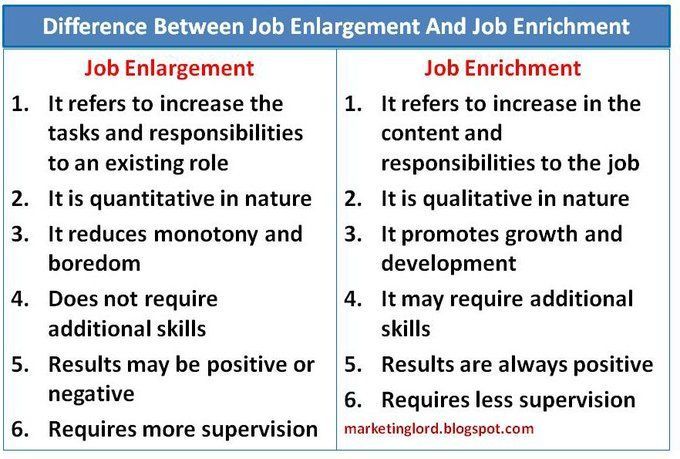6 Essential Steps Before You Start Job Hunting
Looking for a new job can be a daunting experience. The job market is constantly changing, and the list of requirements for applicants seems to grow longer and longer. Your resume is probably out of date, and how are you supposed to know how many golf balls can fit in a school bus (a question asked in too many interviews!)? No need to panic; just follow our step-by-step guide, and you’ll be sitting in an interview room in no time.
Before you start looking at career sites in searching for your next employer, get a few things in order. The last thing you want is to appear disorganized and out of touch. Here are some steps you can take to prepare yourself:
1. Decide what you want out of a new job
Take the time to decide what you want to do. What are you good at and what do you enjoy? Do you want to stay in the industry you know, or do you want to branch out into a new field? What kind of company culture do you want? Figuring this out will help you narrow down your job search.
2. Give your resume a makeover
Although there are alternatives, most people opt for a CV or resume to illustrate their personal brand. There are a variety of resume structures out there to choose from. Find the one that you feel best represents you.
Be honest. Whether the last company you worked for has a bad reputation or you have a criminal record, the truth will come out. There are open-minded recruiters who will take circumstances into account when considering you. And don’t be afraid to include your hobbies as some recruiters find this information revealing.
If you already have a specific job posting in mind, include keywords from the ad in your resume. Many companies use applicant tracking systems to filter out resumes that don’t match the criteria. Don’t let a bot be the reason you’re not shortlisted for an interview!
3. Clean up your social media
The company you apply to will inevitably search for you online. Will they be satisfied or scandalized? While it’s not about censoring you, make sure your privacy settings are such that questionable posts are only visible to certain people. However, since many recruiters require a LinkedIn profile as part of your application, it may be best to keep it clean and open here.
4. Hit up your contacts
Let it be known that you’re ready for a new job. A good place to start is reaching out to your friends, family, colleagues, and former college connections. Referrals from existing employees or contractors will save the hiring company time and money so they’ll be eager to follow the lead. Another way to get your job-seeking status out there is to attend networking events and workshops where you’ll be able to talk your way into a job. (insert link for “Speaking tricks that’ll help you talk your way to a new job”)
5. Monitor potential employers
Keep an eye on companies you’d like to work for when you look for a new job. The best way to do that is by following them on their social platforms. That way, you’ll always know the latest news and be alerted when a job opportunity arises. Sign up for their newsletters and even purchase their products or services if possible. This will put you in a good light when you can give them positive feedback in your interview.
6. Prepare an elevator pitch
An elevator pitch is a 40-second speech that explains who you are, what you’re currently working on, and what your future plans are. Not only will it help you narrow down exactly what you want, but it’s also handy to use at job fairs, networking events, and even in your online profile. It’s a succinct, informative way to introduce yourself and answer the dreaded “Tell me about yourself” question in an interview.
How your job status affects your job hunt
Depending on your current employment status, your approach to the job hunt may differ from an unemployed job seeker. Here are a few examples of situations that can affect the way you approach your employment search, and what to do to get it right:
- You’re currently employed and looking for a new job
When you start actively looking for a job, do so on your own devices and time. Depending on the nature of your relationship with your supervisor, you’ll probably need to be discreet and only use former employers as references. Be sure to maintain a positive attitude at your current workplace and continue to work hard.
- You’re returning to work after a career break
Whether you stopped working to be a stay-at-home parent or you went on sabbatical, re-entering the workforce can be challenging. According to the Wall Street Journal, the rising cost of living is compelling retirees to rejoin the labor force.
Make sure your resume reflects any courses or volunteer work you did during your time away. Get up to date with the latest trends in your industry and hold pretend interviews using common interview questions. Don’t shy away from explaining your job gap (insert link for “How to explain job gaps in an interview”) – be honest and upfront about it while explaining how you made the most of your time away.
- You’re in your final year of college
Don’t wait until graduation to start looking for a job. Whether it’s an internship or a part-time job while you’re studying, work experience will help you build a strong resume and provide insight into whether this is the industry for you. Get references from your professors to further strengthen your CV and take advantage of career guidance centers on your campus that can put you on the right path for your chosen field. After you graduate, keep yourself busy with workshops and short courses while you’re looking for work.
Final thoughts
These tips to prepare you for your job hunt will leave you feeling better prepared for the challenge. If you organize yourself this way, you’ll have a better handle on the job hunting process. Once you’re ready for interviews, be sure to check out our sample questions and answers in preparation for your big day.
Source: https://resources.workable.com/career-center/6-essential-steps-before-you-start-job-hunting/


People That Care Australia does not receive any funding to operate its business. All profits are used to improve the service we offer to Jobseekers.
USEFUL LINKS
FOLLOW US
STAY INFORMED
You need a helping hand with your project?
We will get back to you as soon as possible
Please try again later
CONTACT US
Contact Us
We will get back to you as soon as possible.
Please try again later.
All Rights Reserved | People That Care Australia
Made with 💛 by Shazamme
